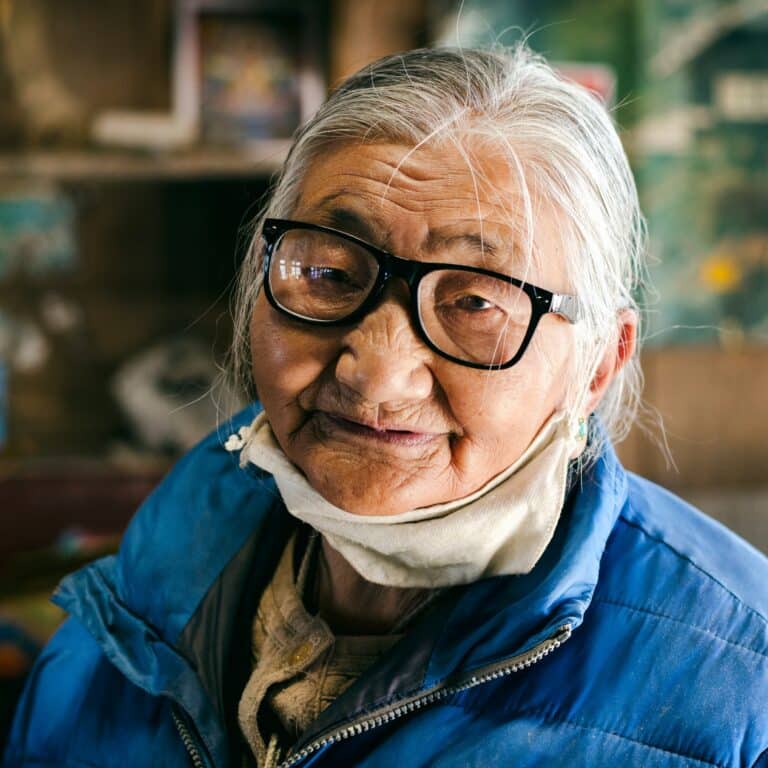What the right to health is
There are many international laws that protect the right to the highest attainable standards of health. This right includes four essential, interrelated elements:
- availability, such that functioning health facilities, goods and services are available for all
- accessibility, including assessing and overcoming discriminatory barriers, financial barriers, physical barriers and barriers to information
- acceptability, meaning that health services are ethical, culturally appropriate and gender sensitive
- quality, which speaks to both the determinants of health such as access to food and to the quality of the provision of health care services
Critically, our right to the highest attainable standard of health is not limited to how the health care system itself is structured. For example, criminal law cannot pose a barrier to accessing health care and governments must create the conditions for the best health possible through access to food and protections against violence.
What we’re doing
In Canada, many people are not aware that their right to health is not protected in domestic human rights law. The “right to health” elements stipulated by international law are critical in advancing human rights in B.C.
The right to health is a new strategic priority for BCOHRC, introduced through the strategic plan published in fall 2025. To advance the right to health, BCOHRC aims to address inequities in access to health care and the conditions for a healthy life. We will also work to improve respect for human rights, including climate justice, in health care settings and institutions.
Learn more about our goals, desired outcomes and example focus areas relating to health in our strategic plan, Rising to the challenge: Path to 2030.



A human rights approach to the toxic drug crisis
In November 2025, the Commissioner issued a position statement on the toxic drug crisis, a public health emergency that has led to the deaths of over 16,000 people in B.C. since 2016 and is now the leading cause of death for people aged 19 to 59.
In addition to being a public health emergency, the toxic drug supply is a human rights crisis. As the Commissioner’s statement describes, stigma is connected to the lack of effective action taken to-date: as we saw not long ago during the COVID-19 pandemic, any other health problem with massive fatalities would be treated with the utmost urgency.
The Commissioner argues that compassion for those most impacted must remain at the centre of decision making—and that a compassionate approach to the toxic drug crisis requires embracing scientific evidence over political ideology and making every possible effort to save lives.
Regardless of whether public health and human rights approaches to substance use are popular, the question is whether they work. And the evidence shows that they do.
Read the Commissioner’s statement to learn more.

Other highlights
The following is a sample of our work relating to health. We encourage you to read our annual reports (accessible via our Publications page) to learn more about the work we have been doing on this priority.
Rights in Focus: Inequities in the health care system
We cannot act on what we don’t know. This is why our Office undertook research to identify 10 key systems impacting human rights in British Columbia.
The landmark Rights in Focus: Lived Realities in B.C. report highlights significant inequities and injustices affecting B.C. residents, providing a crucial tool to understand the current state of human rights in our province and a baseline to monitor change over time. The systems selected for the report are those that most impact B.C. residents’ social, economic and political lives.
Among the systems reviewed for this report was the health care system. Rights in Focus describes how many people in B.C. lack access to basic care, including 17 per cent who are without a regular health care provider. People in rural and remote communities face additional gaps in care.
The report also highlights how both the COVID-19 pandemic and the toxic drug crisis have placed unprecedented additional demands on an already stretched health care system.
Safeguarding against arbitrary detention in health care institutions
In November 2023, B.C.’s Human Rights Commissioner launched an inquiry into involuntary detentions under the Adult Guardianship Act (AGA).
The Adult Guardianship Act permits designated agencies such as health authorities to provide emergency assistance to adults who appear to be abused or neglected and seem incapable of giving or refusing consent to receive care. Relying on this legislation, designated agencies have detained many adults in care facilities. However, the law is unclear about the scope and usage of these emergency powers.
The Commissioner’s inquiry looked into how these emergency powers work and whether detention practices align with human rights laws and standards. The final report, “We’re still here,” describes serious human rights issues with the legislation and practices—including a lack of transparency, oversight and respect for the right to due process—and disproportionate impacts on seniors, people who are unhoused and people with disabilities, including people with mental health and substance use issues, with effects that amount to systemic discrimination.
In response, “We’re still here” lays out 10 clear, actionable recommendations to protect the rights of vulnerable adults.
Calling for the continuation of mask mandates in health care settings
B.C.’s Human Rights Commissioner urged the Provincial Health Officer to reinstate the mask mandate in health care settings to ensure everyone’s protection. The effects of the COVID-19 pandemic continue today and ending the mask mandate in health care settings impedes access to care for those who are more vulnerable. Vulnerable people include those who are immunocompromised, older, Indigenous and racialized, disabled, and low-income communities. Many of these are protected characteristics under B.C.’s Human Rights Code.
What we know
In 2022, 17 per cent of B.C. residents were without a regular health care provider. For racialized people, that figure exceeds 20 per cent.1, 2
Of those surveyed for the 2020 In Plain Sight review, 84 per cent of Indigenous people reported experiences of discrimination when receiving health care services.3
The share of youth who rated their mental health as good or excellent dropped from 81 per cent in 2013 to only 60 per cent in 2023. The share who reported good or excellent mental health was even lower among girls (50 per cent) and non-binary youth (22 per cent).4
In 2022, the rate of toxic drug deaths per capita in the Northern Health area was more than 70 per cent higher than the Fraser Health area, which has the fewest supervised consumption and overdose prevention sites.5, 6
- Statistics Canada. “Has a regular healthcare provider, by age group.” Accessed May 25, 2024. https://www150.statcan.gc.ca/t1/tbl1/en/tv.action?pid=1310009616&pickMembers%5B0%5D=1.11&pickMembers%5B1%5D=3.1&cubeTimeFrame.startYear=2021&cubeTimeFrame.endYear=2022&referencePeriods=20210101%2C20220101.
- Statistics Canada. “Health indicators by groups designated as visible minorities and selected sociodemographic characteristics, 2019-2020.” Accessed May 25, 2024. https://www150.statcan.gc.ca/t1/tbl1/en/tv.action?pid=1310084201&pickMembers%5B0%5D=1.6&pickMembers%5B1%5D=2.2&pickMembers%5B2%5D=4.1&cubeTimeFrame.startYear=2019&cubeTimeFrame.endYear=2020&referencePeriods=20190101%2C20200101.
- Turpel-Lafond, Mary Ellen. In Plain Sight: Addressing Indigenous-specific Racism and Discrimination in B.C. Health Care. Addressing Racism Review, 2020. https://engage.gov.bc.ca/app/uploads/sites/613/2020/11/In-Plain-Sight-FullReport-2020.pdf.
- McCreary Centre Society. The Big Picture: An Overview of the 2023 BC Adolescent Health Survey Provincial Results. McCreary Centre Society, 2024, 19. https://mcs.bc.ca/pdf/2023_bcahs_the_big_picture.pdf.
- BC Centre for Disease Control. “Unregulated Drug Poisoning Emergency Dashboard,” Accessed June 25, 2024. http:// www.bccdc.ca/health-professionals/data-reports/substance-use-harm-reduction-dashboard.
- Northern Health. NH Overdose Prevention & Response: Regional Update. Northern Health, 2021. https://www.northernhealth.ca/sites/northern_health/files/health-information/health-topics/overdose-prevention/documents/nhoverdose-prevention-response-update-jan-2022.pdf.
